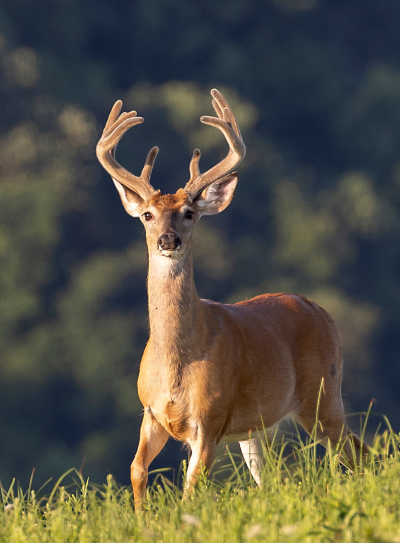On June 15, 2023, the Florida Fish and Wildlife Conversation Commission (FWC) announced a confirmed case of Chronic Wasting Disease in a road-killed 4.5-year-old female white-tailed deer in Holmes County. This is the first known case of CWD in Florida. This deer was sampled during routine surveillance activities. (View full press release).
Currently FWC is working to develop a comprehensive management plan that will focus on control of this disease. As we move forward it is critical to partner with FWC in their efforts to manage this diseases.
While this is the first confirmed case in Florida, there are 31 states in the United States that have been managing CWD, some since 1967. These other states have been able to develop highly successful management plans that allow for their deer populations to continue to thrive, so hopefully Florida will be no different. One of the first steps in control of CWD in our state is to start to understand this disease and how it is transmitted.
–
What is CWD?
- Chronic Wasting Disease (CWD) is a prion disease that affects species of the Cervidae family such as deer, elk, and moose.
– - CWD is known to infect both wild and captive deer.
– - Prion disease are fatal neurodegenerative disorders, with no known treatments or vaccines.
– - Prions are abnormally folded proteins that completely lack DNA. These proteins replicate by causing normally folded proteins to rearrange into a misfolded structure. They then accumulate in neurological structures, such as the brain, causing tissue damage.
– - CWD infected deer can have long periods where they do not show any symptoms yet are still sheading the disease.
– - Other animal prion diseases include Scrappies (sheep and goats) and Bovine Spongiform Encephalopathy (BSE).
–
Transmission of CWD
- Through research, in a controlled environment, deer exposed orally to the disease had an incubation time from 1.5 to 6 years.
– - Asymptomatic (no symptoms observed) and symptomatic deer contribute to the spread of CWD.
– - CWD is spread through the shedding of secretions and excretions (saliva, urine and fesses or nose-to-nose contact) in the environment. Making areas where deer group up, such as feeding and bedding zones, areas of concern for the spread of the disease.
– - Shed prions can remain contagious, mainly in the soil for years after they leave their original host animal.
– - Typically there is a higher prevalence of CWD in males than females. This is thought to be due to males propensity to travel and interact intensely during mating season.
– - The risk of infection in wild deer increases with age, regardless of sex.
–
The leadership team, biologists, and agents at FWC are partnering with agency’s such as UF/IFAS Extension to ensure our states wildlife, hunting heritage, and ecosystem will be maintained for generations to come. There are several good sources of information on CWD. Follow FWC the next few weeks and months for updates. To learn more about the current situation, for updates or other basic information on CWD visit:
FWC’s Chronic Wasting Disease (CWD) website
–
If you see a sick or abnormally thin deer or deer dead of unknown causes, please report its location to the CWD hotline: (866) CWD-WATCH (866-293-9282).
–
- Horn Fly Control In Cattle - June 20, 2025
- Tips for Introducing New Chickens into Your Coop - April 25, 2025
- Tips for a Great Chicken Coop - April 11, 2025


